 i newspaper, June 29, 2017
i newspaper, June 29, 2017
It is beyond me how anyone could send this through without asking what the comparative figures are. It took me seconds to find that they are 27 and 144. Without them the story is meaningless.
 i newspaper, June 29, 2017
i newspaper, June 29, 2017
It is beyond me how anyone could send this through without asking what the comparative figures are. It took me seconds to find that they are 27 and 144. Without them the story is meaningless.
 i newspaper, June 28, 2017
i newspaper, June 28, 2017
So what level of drug-fuelled violence and fighting is acceptable? This is silly. You have to think about the words in front of you, not just shovel them through.
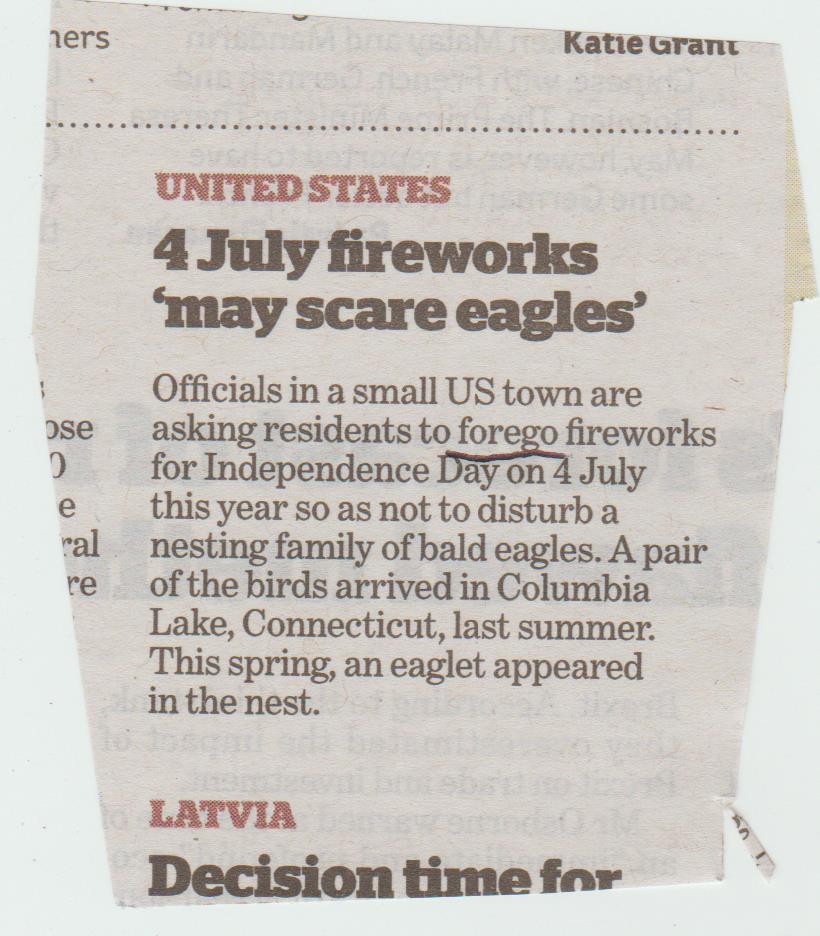 i newspaper, June 28, 2017
i newspaper, June 28, 2017
‘Forego’ means ‘to go in front of’, as in ‘the foregoing paragraph’. The word needed here is ‘forgo’, meaning ‘to do without’.
You don’t need to append ‘this year’ to 4 July. No one would suppose it means next year rather than next week.
‘So as not to disturb’ is clumsy. ‘To avoid disturbing’ is better.
This is an odd sentence: ‘This spring, an eaglet appeared in the nest’. Is the i newspaper suggesting it arrived by magic, or that someone placed it there? What is wrong with ‘This spring they hatched a chick’? (I think chick is more appropriate than eaglet for a hatchling.)
 i newspaper, June 27, 2017
i newspaper, June 27, 2017
It is most confusing to mix imperial and metric measurements like this. Choose one standard and stick to it.
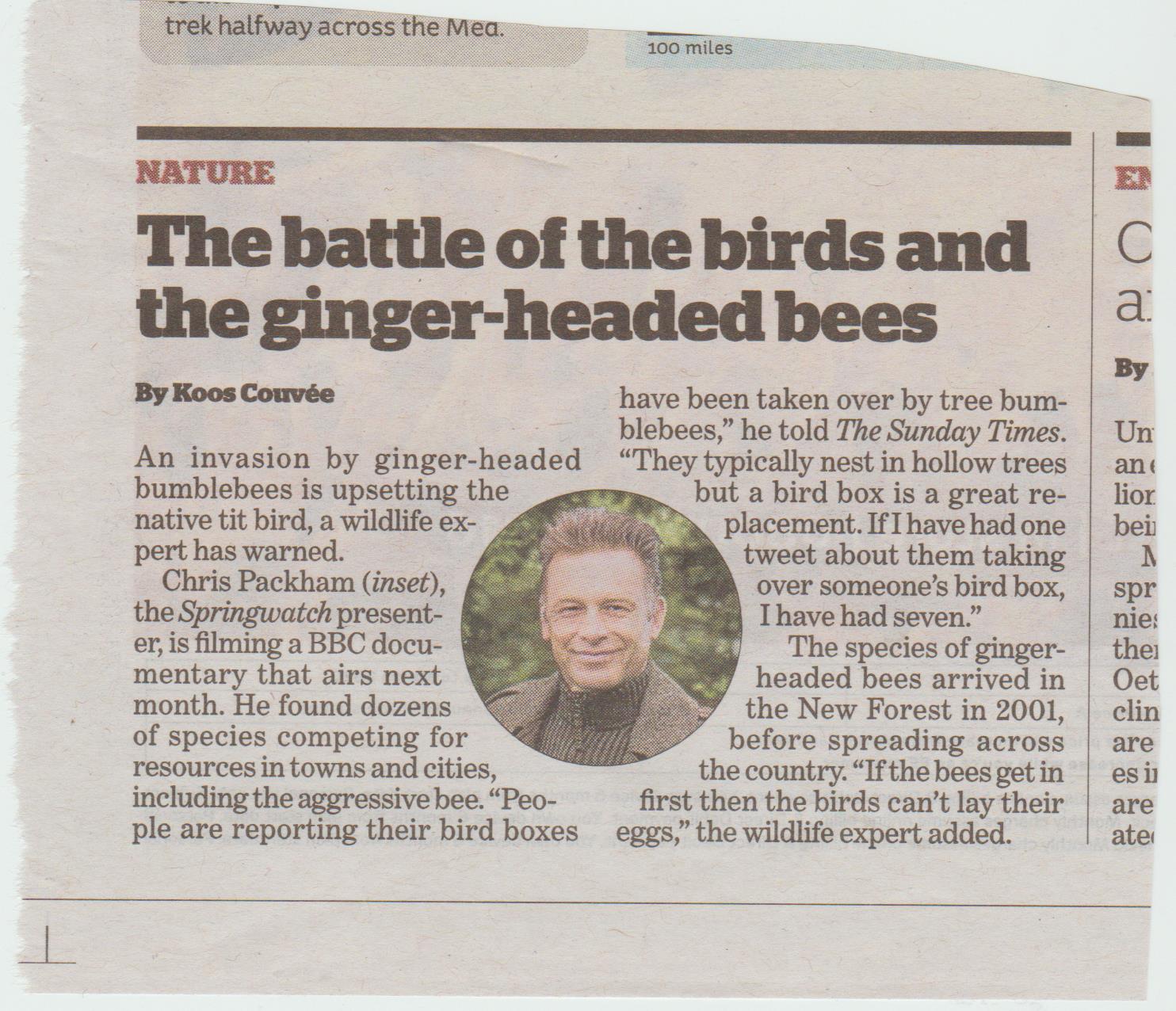 i newspaper, June 26, 2017
i newspaper, June 26, 2017
(130 words) This is typical of the sloppy approach often taken to wildlife stories. It appears from this that the arrival is called the ginger-headed bumblebee, when in fact it is called the tree bumblebee. This name turns up in the quote, but only as a puzzling anomaly. It is conventional (and sensible) to give the Latin name of a species which may be new to readers. It should be in italics, with the first name capped (in this case Bombus hypnorum). The story says the bee arrived in 2001, but where from? The answer is Europe. It would be worth adding that the charity Buglife describes the tree bumblebee as a ‘fantastic pollinator which does no harm to native wildlife’, to offset the suggestion in the story that it is a menace (though seven tweets does not indicate a major problem to me). Buglife also specifically says that the bee is not particularly aggressive. ‘The native tit bird’ is a most peculiar phrase. Finally, instead of the familiar face of Chris Packham, wouldn’t it be a good idea to use a picture of the bee in question so that readers can recognise it?
In earlier times a sub would have had to go the office library and try to find information from cuttings and reference books. Now it is available instantly on the internet. I can see no excuse for putting through such an incomplete and lazy story. If the copy is poor, it is the sub’s job to improve it. Otherwise there is no point in doing the job, is there?
This is how I would have done it:
A European bumblebee which has recently arrived in Britain is upsetting native birds, according to wildlife expert Chris Packham.
He says the tree bumblebee (inset), which has a distinctive ginger head, is taking over nestboxes, preventing birds such as bluetits from laying their eggs.
The Springwatch presenter has been filming a BBC documentary on urban wildlife which airs next month. He found dozens of species competing for resources.
‘Tree bumblebees typically nest in hollow trees but a bird box is a great replacement,’ he told the Sunday Times.
The tree bumblebee (Bombus hypnorum) was first seen in the New Forest in 2001 and has spread across the country. The charity Buglife says it is a welcome immigrant, describing it as ‘a fantastic pollinator which does no harm to native wildlife’. (132 words)
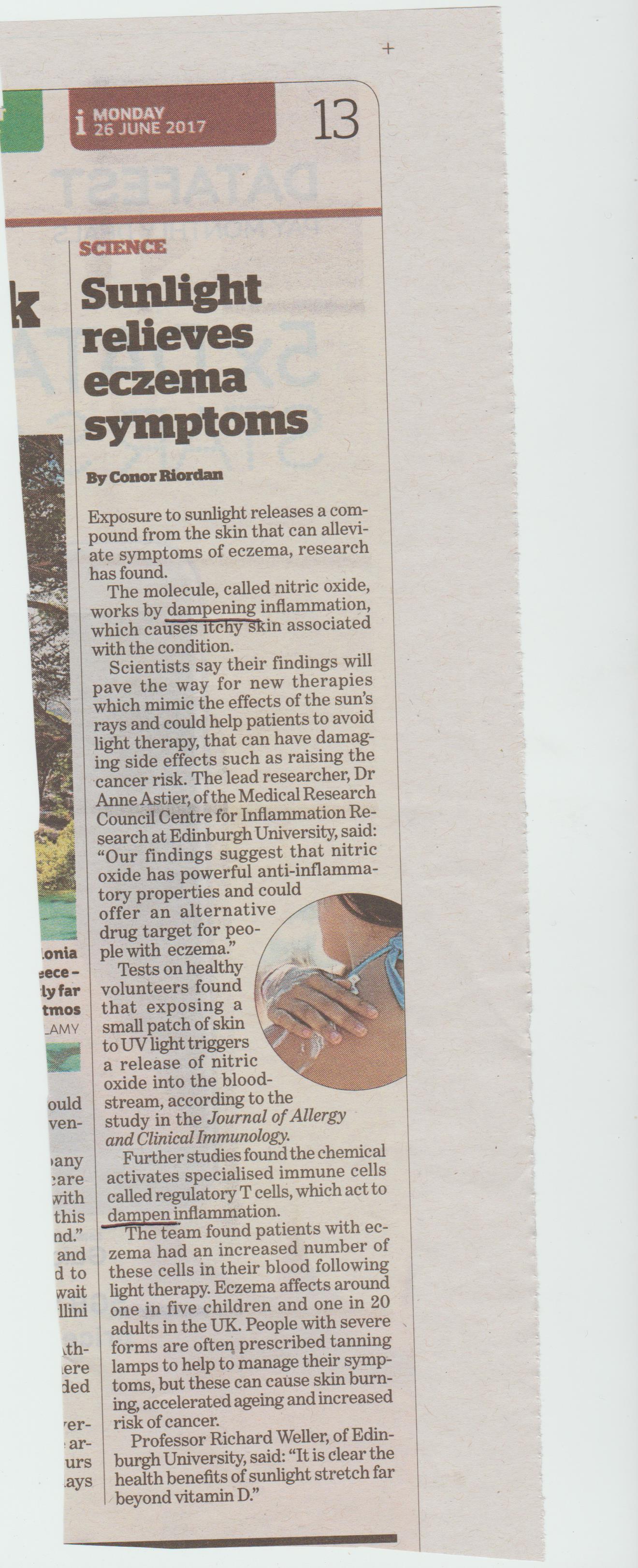 i newspaper, June 26, 2017
i newspaper, June 26, 2017
‘To dampen’ is to make moist. The verb required here is ‘damp’, meaning to suppress. It is often used with ‘down’, as in ‘he damped down the remains of the fire’.
Britain’s Got Talent star Susan Boyle is being cruelly taunted, intimdated and attacked by a gang of youths, it was reported last night.
Witnesses have claimed singing sensation Boyle, who suffers from Asperger Syndrome, is being ‘hounded’ by a group of 15 young people who live near her in West Lothian, Scotland.
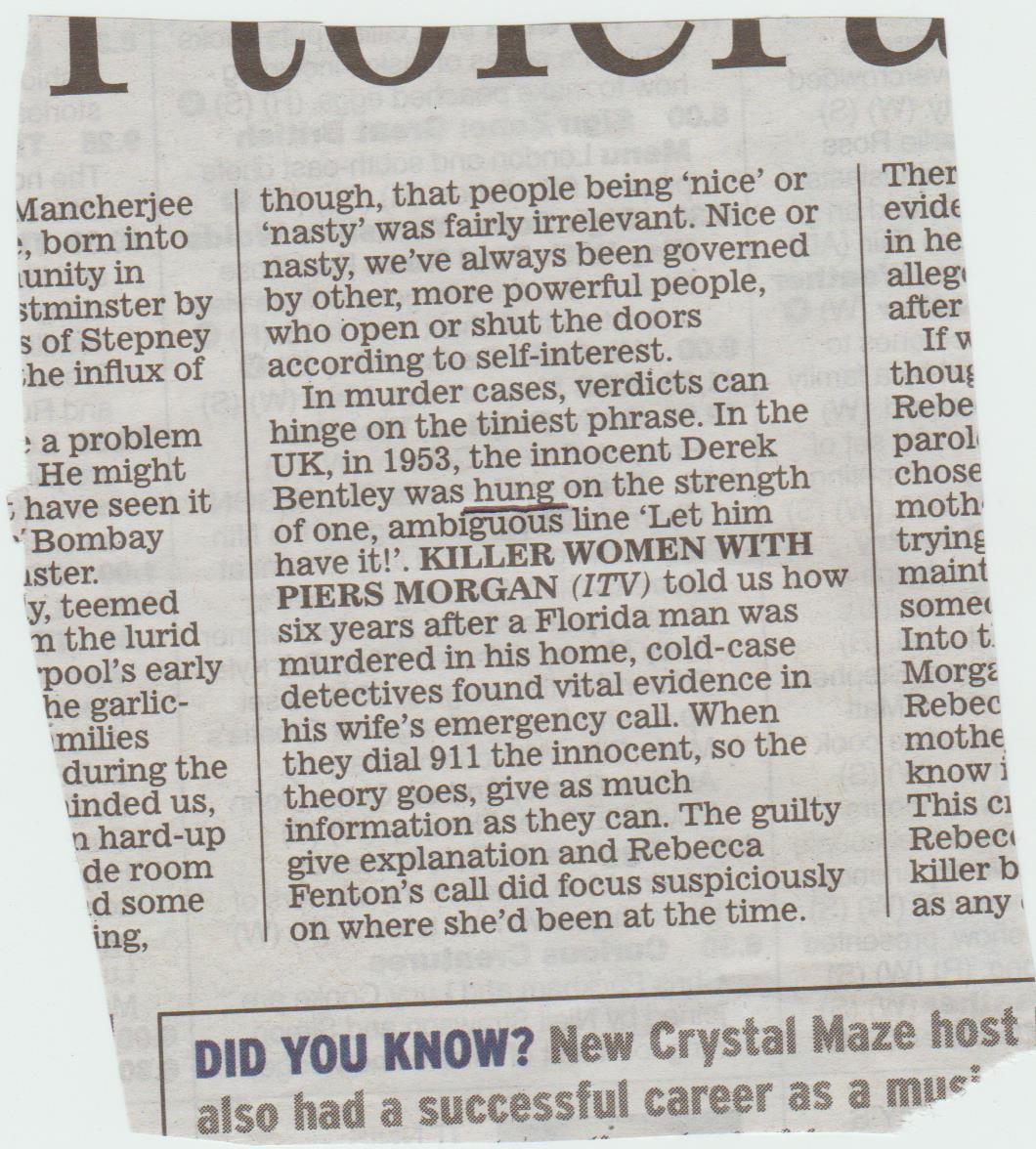 Daily Express, June 23, 2017
Daily Express, June 23, 2017
The past tense of ‘hang’ in the sense of execution is ‘hanged’.
All these clippings are from The Times, June 21, 2017.
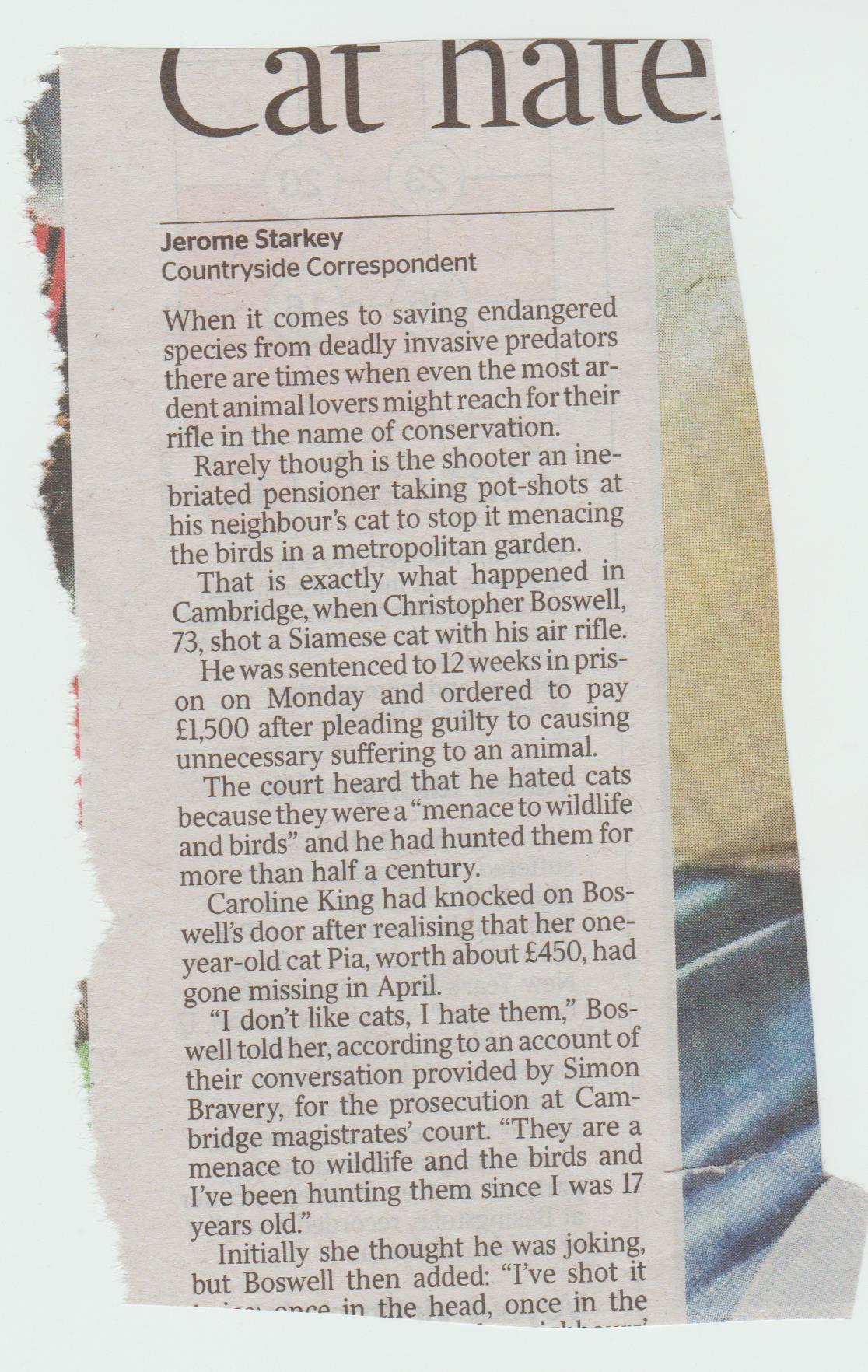
This is a ridiculous intro. There is no need to try to dress up a perfectly good story. I would do this:
A pensioner who says he hates cats because they kill birds and wildlife has been jailed for 12 weeks after shooting a neighbour’s Siamese.
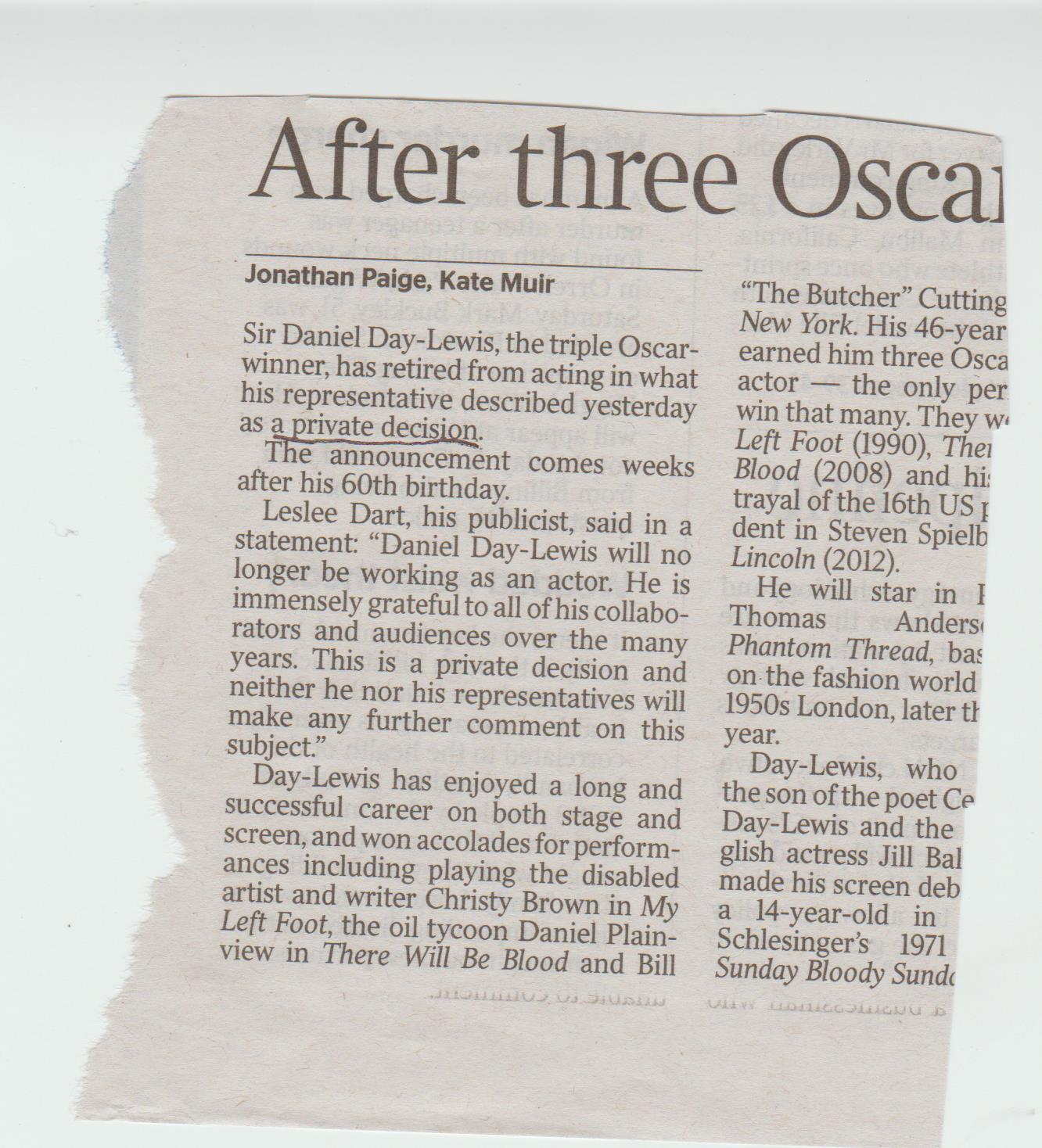
‘A private decision’? What’s the alternative, ‘after a public vote’? Even if the agent makes a fatuous statement like this, there is no need to treat it as holy writ and put it in the intro. I would do this:
Sir Daniel Day-Lewis, the winner of three Oscars, has announced his retirement from acting at the age of 60.
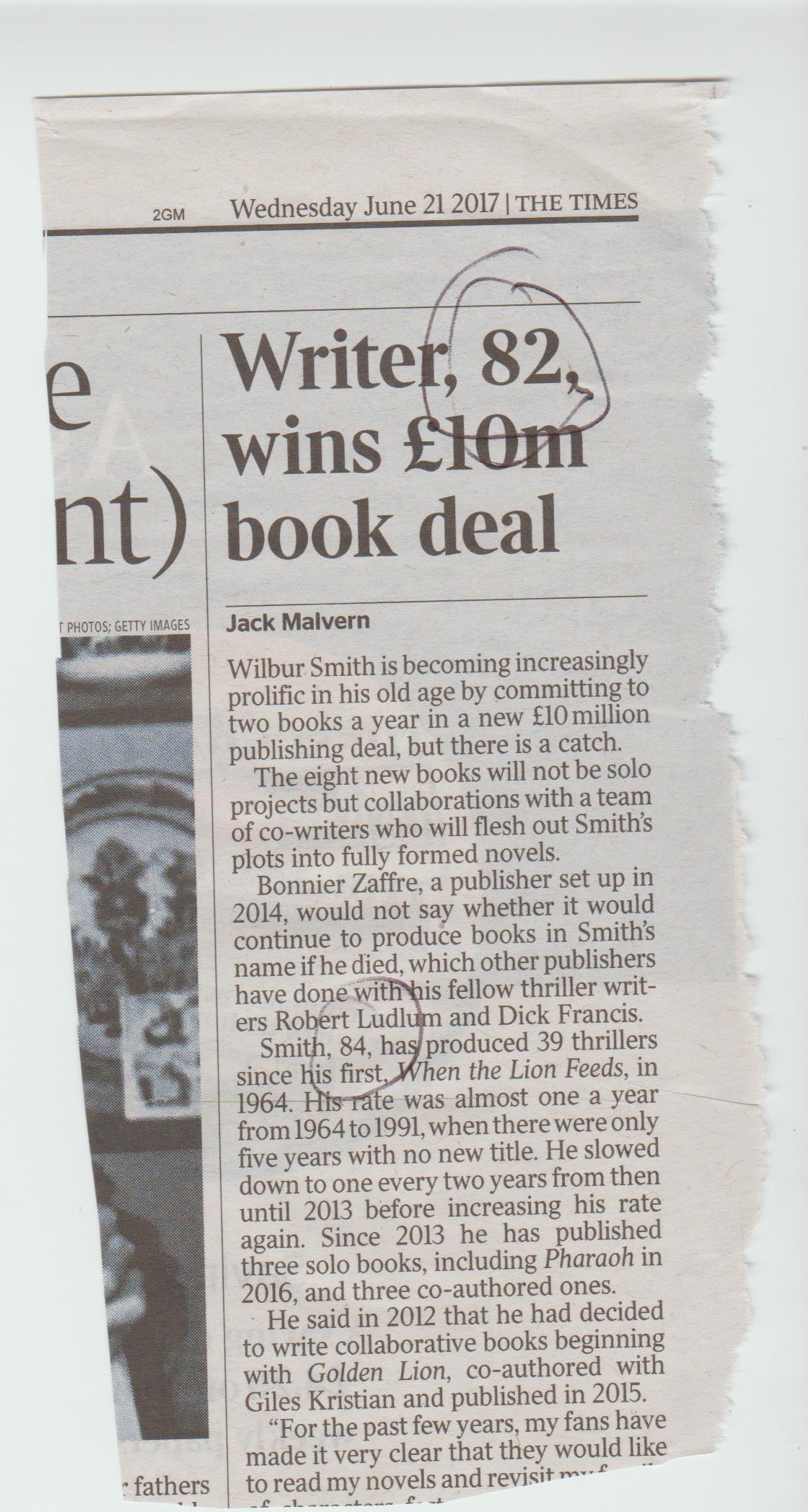
The least a sub should do is to get the same age in the copy and the headline. And Wilbur Smith is so well known that he should be named in the heading, not reduced to ‘Writer’. You could do this:
£10m deal
for Wilbur
Smith, 84
though ideally it is better not to split a name between two lines. However the content is more important than the rules.

Why is the quokka described as the world’s happiest animal? You won’t find out from this piece, but it turns out to be a combination of its friendliness and its apparent smile. It would be worth mentioning in the context of this story that it is endangered, being down to a few thousand individuals. The highlighted paragraph makes no sense. This is a case for applying the rule ‘If in doubt, leave it out’.

Another tedious intro. How about
Rock star Brian May, who has fought high-profile campaigns against foxhunting and culling badgers, has a new target.
The 69-year-old Queen guitarist claims British Airways has ruined the view from its first class seats.
I think this clearer format is better at highlighting the serious nature of May’s complaint.
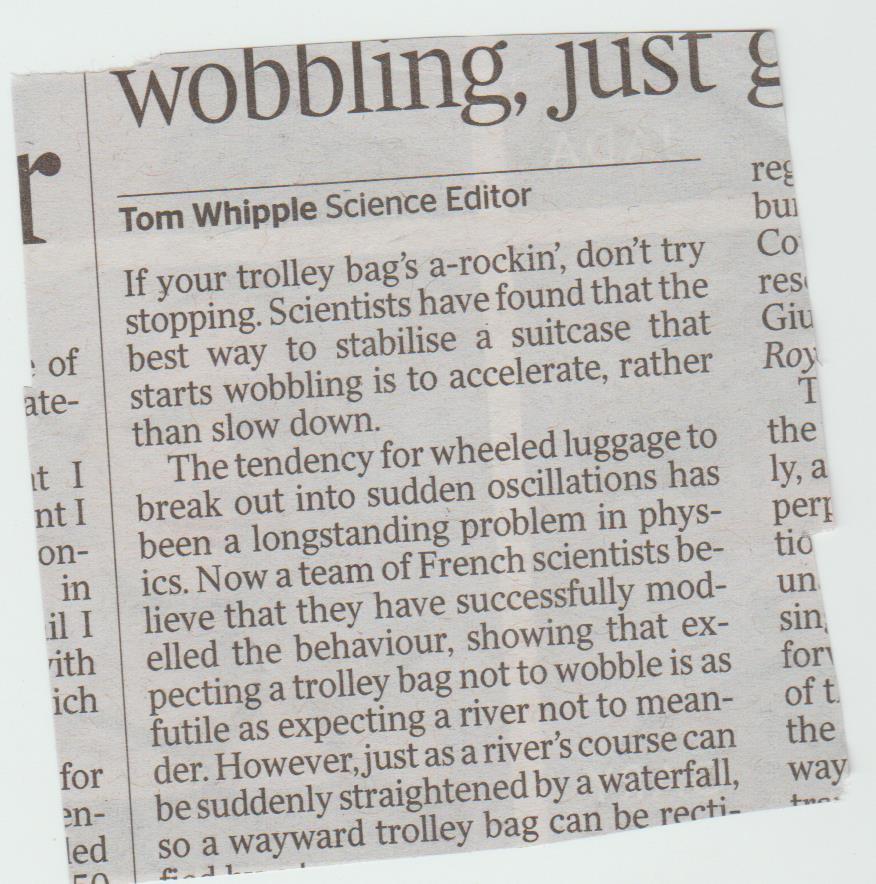
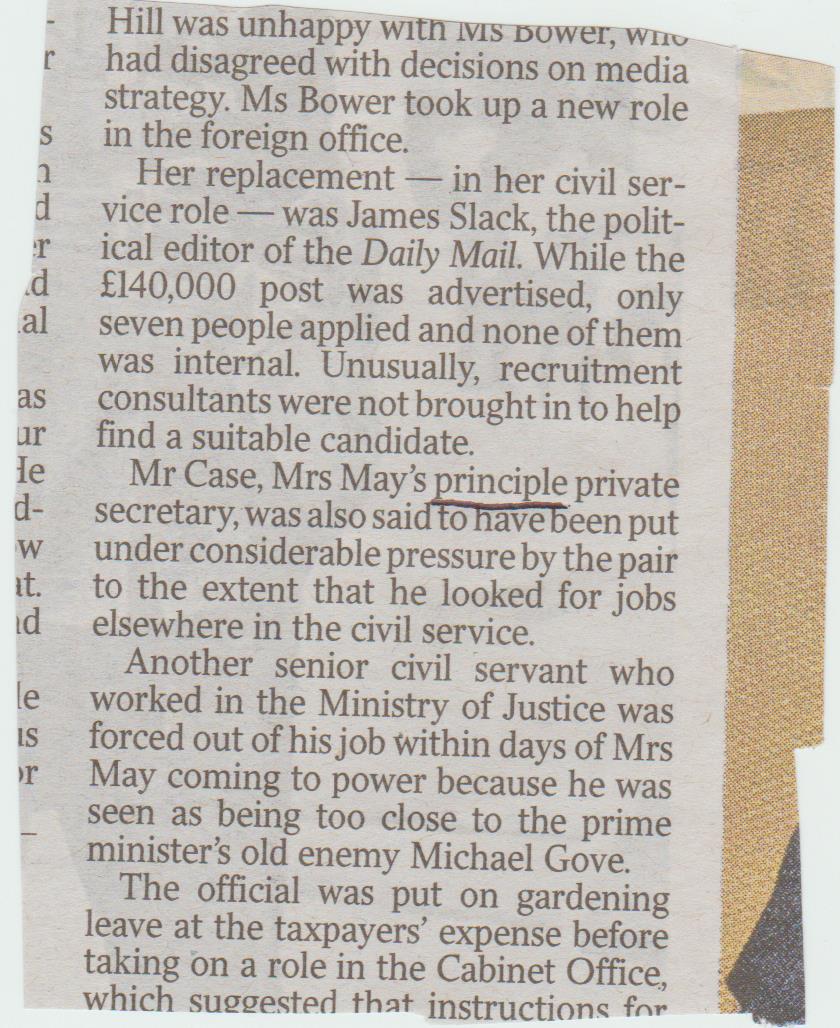 The Times, June 17, 2017
The Times, June 17, 2017
Principle is a noun meaning concept, morality or belief, for example ‘her guiding principle is that the chief sub is always right’. The word needed here is principal, an adjective meaning ‘chief’ or ‘main’.